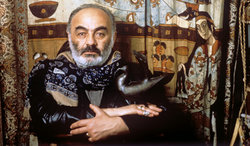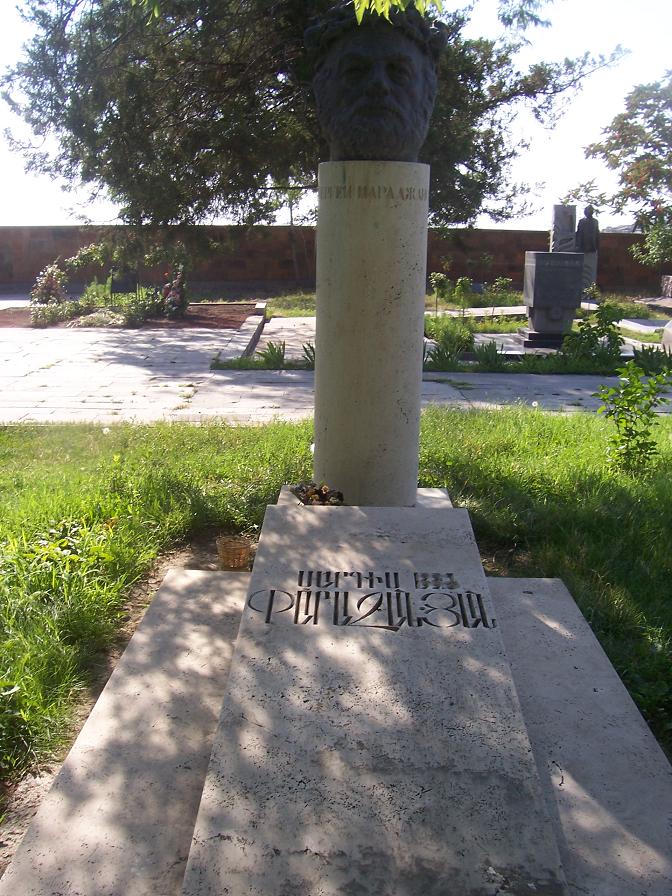Soviet authorities continued to be suspicious of Parajanov's work and in 1973 arrested him on trumped-up charges of deviancy. He was sentenced to five years of hard labor in Siberia, to the protest of many famous international artists. Parajanov was released a year early thanks to the intervention of Louis Aragon, Elsa Triolet, and the American writer John Updike at the direction of Leonid Brezhnev. During his incarceration, Parajanov created many miniature doll-like sculptures as well as 800 drawings, many of which are now on display at the Parajanov House Museum in Yerevan, Armenia.
Parajanov returned from Siberia to Tbilisi and was prevented by the Soviet censors from releasing any more films. He continued in other artistic pursuits such as collages and was briefly imprisoned again in 1982 for a year until being released due to poor health. He created a few more films as the Soviet Union began to relax its rules: 1984's Legend of Suram Fortress and 1988's Ashik Kerib. He was working on his last film The Confession when he died in Yerevan of cancer at age 66. The telegram which announced his death read "The world of cinema has lost a magician".
Soviet authorities continued to be suspicious of Parajanov's work and in 1973 arrested him on trumped-up charges of deviancy. He was sentenced to five years of hard labor in Siberia, to the protest of many famous international artists. Parajanov was released a year early thanks to the intervention of Louis Aragon, Elsa Triolet, and the American writer John Updike at the direction of Leonid Brezhnev. During his incarceration, Parajanov created many miniature doll-like sculptures as well as 800 drawings, many of which are now on display at the Parajanov House Museum in Yerevan, Armenia.
Parajanov returned from Siberia to Tbilisi and was prevented by the Soviet censors from releasing any more films. He continued in other artistic pursuits such as collages and was briefly imprisoned again in 1982 for a year until being released due to poor health. He created a few more films as the Soviet Union began to relax its rules: 1984's Legend of Suram Fortress and 1988's Ashik Kerib. He was working on his last film The Confession when he died in Yerevan of cancer at age 66. The telegram which announced his death read "The world of cinema has lost a magician".
Family Members
Sponsored by Ancestry
Advertisement
Advertisement




